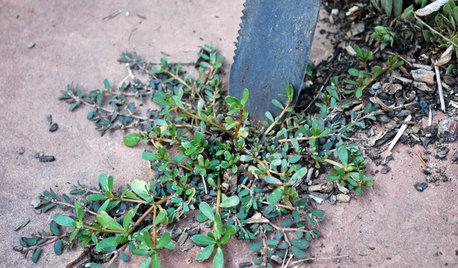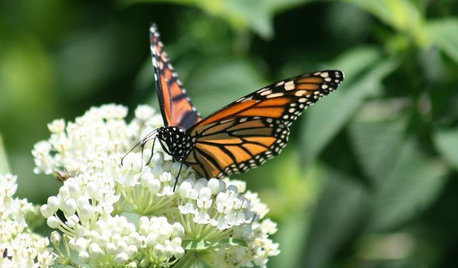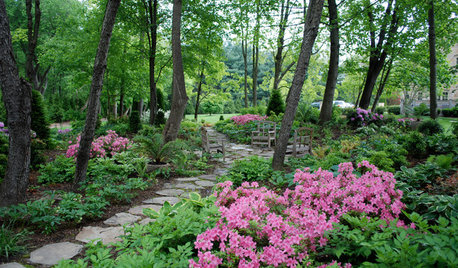Has Broad Leaf Weed Killer Ruined My Fire Bushes
ramblin_red_rose
13 years ago
Related Stories

EDIBLE GARDENSNatural Ways to Get Rid of Weeds in Your Garden
Use these techniques to help prevent the spread of weeds and to learn about your soil
Full Story
GARDENING GUIDES5 Ways to Naturally Win the Weed War
Show irksome weeds no mercy with these tricks for combating them sans chemicals
Full Story
GARDENING GUIDES7 Ecofriendly Gardening Ideas That Also Cut Chore Time
Spend less time weeding, less money watering and more moments just sitting back and enjoying your healthy garden
Full Story
GREEN BUILDINGBuilding Green: How to Design a Healthier Landscape
Plant selection, water management, fire-prevention measures and more can ensure that your landscape is good for the planet and for you
Full Story
GARDENING GUIDESHow to Stop Worrying and Start Loving Clay Soil
Clay has many more benefits than you might imagine
Full Story
LANDSCAPE DESIGN15 Great Ideas for a Lawn-Free Yard
End the turf war for good with hardscaping, native grasses and ground covers that save water and are easier to maintain
Full Story
GARDENING FOR BUTTERFLIESGardening for the Bees, and Why It’s a Good Thing
When you discover how hard bees work for our food supply, you may never garden without them in mind again
Full Story
GARDENING GUIDESGarden Myths to Debunk as You Dig This Fall and Rest Over Winter
Termites hate wood mulch, don’t amend soil for trees, avoid gravel in planters — and more nuggets of garden wisdom
Full Story
BEFORE AND AFTERSSee 6 Yards Transformed by Losing Their Lawns
Wondering whether a turf lawn is the best use of your outdoor space? These homeowners did, and they found creative alternatives
Full Story
FALL GARDENING7 Reasons Not to Clean Up Your Fall Garden
Before you pluck and rake, consider wildlife, the health of your plants and your own right to relax
Full Story






oilpainter
ianna
Related Professionals
Glen Ellyn Landscape Architects & Landscape Designers · South Orange Landscape Architects & Landscape Designers · Edmond Landscape Contractors · Maple Valley Landscape Contractors · Gainesville Landscape Contractors · Garland Landscape Contractors · Middle River Landscape Contractors · Pomona Landscape Contractors · Rio Linda Landscape Contractors · Shaker Heights Landscape Contractors · Shirley Landscape Contractors · The Villages Landscape Contractors · Thonotosassa Landscape Contractors · Tigard Landscape Contractors · Wanaque Landscape Contractorsramblin_red_roseOriginal Author
ianna
ramblin_red_roseOriginal Author
ianna
tiffy_z5_6_can
ramblin_red_roseOriginal Author
ianna
tiffy_z5_6_can
ramblin_red_roseOriginal Author
ramblin_red_roseOriginal Author
madtripper